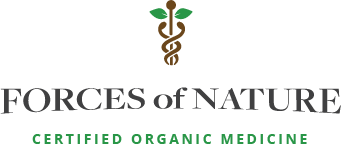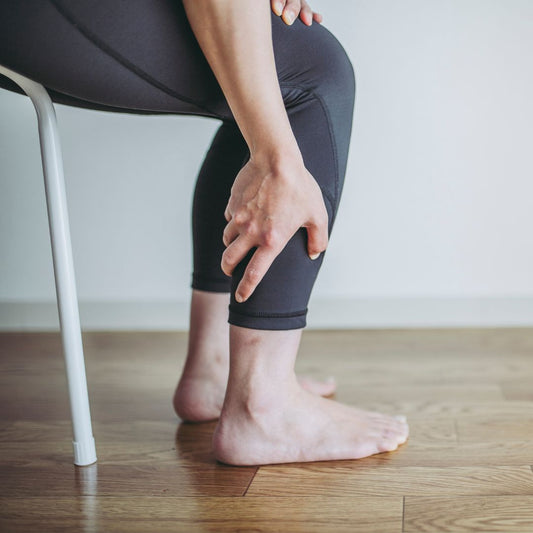By Dr. Peter Klapper Ph.D.
Modern medicine gets increasingly expensive, making it an essential commodity that not everyone can afford. Since 2014, prescription medication prices have increased by 35%.
With the cost of conventional drugs rising each year and more people being mindful of the substances they consume, some are now searching for cost-effective and natural alternatives to help treat their ailments without adverse side effects.
Homeopathy is an alternative that fits the bill. This medical system has been around since the 18th century, with many cultures adopting it and praising its holistic approach to treatment and health.
As the modern medical market steers toward more natural remedies, there's no better time to consider homeopathy than now.
Discover homeopathy's history, principles, and other valuable details in this post.
What is Homeopathy?
Homeopathy is an alternative medical system that proposes the human body can cure itself. Homeopathic doctors conduct treatments that stimulate the body's healing responses to certain diseases and administer substances that mimic the symptoms of a healthy person.
The system presents two theories. The first is "like cures like," a belief that an illness is curable when someone takes medication that produces similar symptoms to healthy individuals. The second is the "law of minimum dose," which asserts that medicine taken in smaller quantities is more potent.
Homeopathy offers many benefits. It's a low-cost treatment, a natural remedy, and the key to a healthier lifestyle.
A Brief History of Homeopathy
Homeopathy dates back to the 18th century, but its practice continues up to this day. Here is a brief history and timeline tracing the origins and growth of homeopathy.
The 1790s: The beginning of homeopathy
Homeopathy began in the 1790s when German physician Samuel Christian Hahnemann first coined the term.
Hahnemann took inspiration from "the law of similars," the pharmacological principle that philosophers— like Paracelsus and Hippocrates—described and different cultures—like the Chinese, Mayans, Greeks, and more—adopted. The physician then organized these ideas to create homeopathy as the modern world knows it.
Homeopathy received its namesake from the Greek words "homoios," which means similar, and "pathos," which means suffering.
While some are more receptive to homeopathy as a modern alternative treatment, it received much criticism from traditional medical practitioners during its initial conception.
Fortunately, homeopathy enthusiasts would champion the method heading into the new century.
The 1800s and early 1900s: Homeopathy comes to the United States
Believers of homeopathy would continue to support Hahnemann's findings, and in the 1840s, the practice flourished in the United States. By 1844, homeopathy became so widespread that advocates established the American Institute of Homeopathy, becoming the US' first national medical society.
Since the general public considered homeopathic treatment more humane than the primitive practices of early modern medicine, homeopathy gained traction with a wider audience.
However, as in the early years of this alternative medical system, there were still entities challenging homeopathy's philosophies and accompanying success. In particular, orthodox medical practitioners rejected homeopathy.
Nevertheless, homeopathy supporters stood firm, so the system survived and thrived throughout the remainder of the 1800s and entering the 1900s. Unfortunately, due to opposition, the midpoint of the new century proved to be the first major hurdle in homeopathy's continued success.
Meanwhile, homeopathy gained a new following in other parts of the world, like Asia and Europe, giving it a new life and audience. Homeopathy remained strong in the succeeding decades due to its newfound popularity. Eventually, the practice would regain its place in the consciousness of American communities.
The 1970s: The resurgence of homeopathy in the United States
With its popularity reaching new heights in large portions of the world, a new generation of Americans discovered the system, causing the resurgence of homeopathy in the United States.
By the mid-1980s, sales of homeopathic medicine increased by 1,000%, solidifying homeopathy's place as a worthy alternative to traditional medicine.
Today, homeopathy maintains a strong presence in alternative medicine and will likely continue into a streak of success.
7 Principles of Homeopathy
Homeopathy treatment abides by specific principles first proposed by its creator, Samuel Hahnemann. While these principles have undergone multiple refinement cycles, the general idea that guides practitioners in utilizing homeopathy's healing capabilities is intact.
1. The law of similars
Again, the law of similars is one of the building blocks Hahnemann used to develop homeopathy as a medical practice. Under this law, a substance capable of producing symptoms in a healthy person can also remove similar manifestations in a sick person.
To illustrate the law of similars, we will use onions and hay fever as an example. Hay fever symptoms include a runny nose and watery eyes. Since onions contain a substance that induces the same type of reaction in humans—a runny nose and watery eyes—they are considered a remedy for hay fever under the law of similars.
In homeopathy, the treatment for hay fever is called Allium cepa, a homeopathic medicine made from onions with alcohol or water added into the mix to dilute the solution. The preparation would then go through a "potentization" stage, where homeopath professionals shake the mixture to transfer the ingredient's healing properties.
2. The law of simplex
The second cardinal principle in homeopathy is the law of simplex or the belief that a patient should only take a single dose of a homeopathic remedy at any given time for it to be effective. The law of simplex discourages multiple doses of homeopathic medicine, regardless if the patient is suffering from various symptoms.
The reason for the single-dose rule is that homeopaths believe that multiple doses prevent them from controlling and ensuring a treatment's success. Aside from that, homeopaths believe that administering more than one dose creates more symptoms that may be harmful to the patient.
3. The law of minimum doses
The law of minimum doses is a belief that the lower the dosage, the more effective the treatment. Arndt-Schulz's "law of action and reaction" illustrates this principle, showing that weak stimuli excite physiological activity, but moderate doses and substantial concentrations inhibit and stunt that activity, respectively.
This means that homeopathic treatments are not likely to produce adverse side effects often caused by synthetic medication. Minimum doses also prevent the symptoms from aggravating during the course of the treatment.
4. The doctrine of drug proving
Drug proving is the systematic homeopathic process of acquiring knowledge about the medicine used to treat illnesses. Under the doctrine of drug proving, the treatment undergoes clinical trials on healthy individuals to see if the drug in question can produce the desired reaction or healing properties. These trials also measure the treatment's quality and potency.
5. The theory of chronic diseases
According to this theory, chronic diseases are not just an accumulation of symptoms but are a complex disease that affects the whole organism, including the physical, mental, and emotional aspects.
This principle suggests illnesses that reoccur or re-appear after treatment may be chronic due to disease-producing agents called "chronic miasms." Although besides miasms, other leading causes of chronic diseases include an unhealthy lifestyle, stress, or an autoimmune disorder.
Miasms are viruses—like cancer, malaria, AIDS, etc.— harmful to the body. In his studies, Hahnemann categorized miasms into three types: Psora, Sycosis, and Syphilis.
Based on the theory of chronic diseases and the role of miasms as the root cause of chronic diseases, homeopathy considers chronic illness symptoms as the body's attempt to heal itself. Homeopaths believe that treating the underlying miasm will alleviate the person's symptoms and cure the disease.
6. The theory of vital force
Homeopaths believe that spirit-like energy, known as the "vital force," controls the harmony of body functions and dictates an individual's health.
Hahnemann determined that a person's vital force reacts against hostile disease-causing forces. When the self-acting or automatic force comes into contact with the opposing ones, it disturbs the person's strength or power and leads to an illness. Meanwhile, a healthy body has an unopposed vital force, supporting the idea that prevention is better than cure.
7. The doctrine of drug dynamization
Homeopathy's final core principle is the doctrine of drug dynamization, which highlights the homeopathic medicine preparation process. Alternatively known as potentization, the preparation method entails repeatedly diluting the materials and shaking the mixture forcefully to eliminate any toxins and stimulate the drug's therapeutic effects
Through drug dynamization, homeopaths believe homeopathic remedies will last longer, work better, and be more potent long-term.
Is Homeopathy Safe?
Homeopathy is safe and effective, with no side effects for users. If at all, the risks associated with homeopathic drugs are negligible compared to those of an unhealthy lifestyle.
Homeopathic remedies undergo a rigorous and specialized preparation process to eliminate chemical toxicity while enhancing their potency. Standard concentrations, like 30C and 200C, go through thorough dilution. Homeopathic medicine manufacturers dilute remedies with 30C potency 30 times at a 1:100 ratio, while 200C variants go through the dilution process 200 times.
So, if you're searching for a more natural, accessible, and affordable alternative to traditional medication, homeopathic medicine offers a viable and safe option.
What Diseases Can Homeopathy Treat?
Qualified homeopathic doctors use homeopathic medicines to treat various diseases, including autoimmune, degenerative, acute, and seasonal ailments, and even menstrual disorders. Many believe there are more illnesses homeopathy can treat, making the practice's healing capabilities endless.
Homeopathic doctors treat all diseases differently, as health conditions vary from person to person. After identifying the causes and symptoms, homeopathic doctors manage each case with the proper approaches and prescribe the most effective remedy. The prescription phase is extensive, starting with case-taking, followed by medicine selection and potency determinations.
Practitioners of homeopathy believe that accomplishing every step is vital in ensuring that the patient experiences favorable outcomes.
The following are some common ailments that homeopathy can cure:
- cough, cold, and allergies;
- asthma;
- influenza;
- skin conditions like acne, eczema, psoriasis, etc.;
- fungal infections like athlete's foot, nail fungus, ringworm, etc.;
- cold sores;
- heartburns;
- hemorrhoids;
- varicose veins;
- gout;
- pains in the back, joints, muscles, or nerves; and
- headaches and migraines.
With the advances in homeopathy, practitioners will likely develop homeopathic medications to treat more illnesses effectively.
What to Expect in a Homeopathic Consultation
Homeopathic consultations vary depending on your needs and the doctor's expertise. However, most visits to a homeopathic doctor involve standard procedures.
First, the homeopathic doctor will ask about your sickness and what you want to achieve regarding your health and other lifestyle aspects.
They will then inquire about your current and past treatments, pathology results, and diagnosis before proceeding to their formal evaluation. Next, they will investigate further and compare your symptoms to known diseases that exhibit the same traits.
Homeopathic doctors will also analyze your broader medical history to get more insight into your condition and determine if underlying problems affect your health. Aside from your medical complaints, homeopathic doctors also routinely ask questions about your mental, emotional, and overall well-being.
They may also check your sleeping and eating habits, which are crucial information in homeopathic evaluation. This consultation method aligns with homeopathy's holistic approach to treating illnesses.
After the consultation, your homeopathic doctor will prescribe treatment to address your ailment. If more research is necessary, you might need to make new arrangements for your next visit.
The Vast Potentials of Homeopathy
Despite some pushback in the past, homeopathy has withstood the test of time. The medical system's longevity demonstrates that natural treatment methods have some of the best use cases. With more people discovering its healing capabilities, homeopathy's legacy will only improve over time.
Unfortunately, some people who mimic homeopaths offer ineffective treatments that paint the practice in a bad light. When buying homeopathic remedies, it's best to use products only from reputable homeopathic companies like Forces of Nature.
Established in 1999, Forces of Nature supports the natural healing of illnesses. As such, our homeopathic experts develop high-quality, FDA-registered, and USDA-Certified Organic remedies for overall health improvement. For all your homeopathic medicine needs, contact us today!




